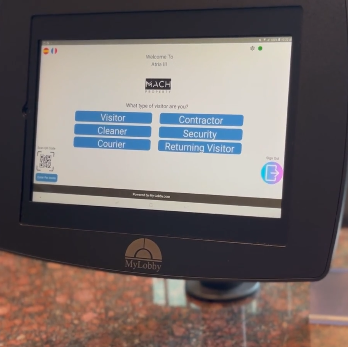Are you a business or organization looking to navigate the complex world of lobbying? Effective lobby registration is the key to success. In this comprehensive guide, we will walk you through the process step by step, ensuring that you are well-prepared to engage in the world of lobbying.
Understanding the importance of lobby registration is crucial for any entity involved in influencing legislation or policy-making. Not only does it provide transparency and accountability, but it also safeguards against unethical behavior and ensures fair play in the legislative process. By registering your lobbying activities, you not only comply with legal obligations but also gain credibility and trust with lawmakers and the public.
This guide will cover everything you need to know about lobby registration, from the basics to more advanced strategies. We will discuss the different types of lobbying, when registration is required, how to navigate the registration process, and what information is typically required. Additionally, we will provide tips and best practices for effective lobbying, including building relationships, effective communication, and staying informed on legislative developments.
Stay tuned as we dive deep into the key to effective lobby registration, helping you make an impact and achieve your goals.
The importance of lobby registrations for organizations and businesses

Lobby registrations play a crucial role in the democratic process by ensuring that lobbying efforts occur transparently and ethically. They provide a means of tracking and monitoring the influence lobbyists exert on lawmakers and decision-makers. When organizations and businesses register as lobbyists, they demonstrate their commitment to engaging openly and honestly with the legislative process. This transparency builds trust among lawmakers, the public, and other stakeholders.
Additionally, lobby registrations help level the playing field by ensuring that all organizations and businesses have equal opportunities to express their concerns and advocate for their interests. Requiring registration enables legislators to distinguish between legitimate lobbying efforts and attempts to unduly influence or manipulate the system.
Lobby registration laws and regulations
Lobby registration laws and regulations vary from country to country and even within different jurisdictions. Therefore, organizations and businesses must understand the specific requirements in their respective locations. In some cases, lobbying activities may need to be registered at the federal, state, and local levels.
Common requirements for lobby registrations include revealing the identity of the lobbyist and the organization they represent, as well as the specific issues or topics being advocated for. Additionally, financial disclosure may be necessary to show the resources allocated to lobbying efforts.
Non-compliance with lobby registration laws can result in severe penalties, including fines and legal repercussions. Thus, it is crucial to stay informed and ensure full compliance with the applicable regulations,
Steps to successful lobby registration
To ensure a smooth and successful lobby registration process, organizations and businesses should follow a series of steps:
- Research: Start by researching the lobby registration requirements in your jurisdiction. Identify the relevant laws, regulations, and deadlines that apply to your lobbying activities.
- Gather information: Collect all necessary information, such as the names and contact details of your lobbyists, a description of the issues you will be advocating for, and any financial disclosures required.

3. Complete registration forms: Fill out the lobby registration forms accurately and completely. Pay close attention to the instructions provided and ensure that all required fields are properly filled in.
4. Submit registration: Submit your lobby registration forms within the designated timeframe. Keep copies of all submitted documents for your records.
5. Follow-up: Monitor the progress of your registration and address any inquiries or requests for additional information promptly. Additionally, it is essential to demonstrate cooperation and responsiveness throughout the process.
Tips for effective lobby registration

While lobby registration is a legal requirement, organizations and businesses can take additional steps to maximize the impact of their lobbying efforts. Consider the following tips to enhance your lobby registration:
- Build relationships: Develop relationships with lawmakers and their staff before registering as a lobbyist. Additionally, establishing rapport and trust can significantly increase the effectiveness of your advocacy efforts.
- Craft a clear message: Clearly articulate your organization’s goals and the reasons behind your advocacy. Moreover, craft a compelling message that resonates with lawmakers and highlights the importance of your cause.
3. Stay informed: Stay up to date with legislative developments, policy changes, and news relevant to your industry or cause. Being well-informed allows you to respond promptly and effectively to emerging issues.
4. Engage in strategic communication: Tailor your communication strategies to the preferences of lawmakers and their staff. Then, personalize your messages and use various channels, such as emails, phone calls, and in-person meetings, to ensure your voice is heard.
5. Collaborate with like-minded organizations: Join forces with other organizations or businesses that share similar interests or objectives. As a result, collaborative efforts can amplify your lobbying impact and bring about positive change.
Common challenges and how to overcome them
Navigating the lobby registration process can be challenging, especially for organizations and businesses new to lobbying. Some common challenges include:
Firstly, understanding complex regulations: Lobby registration requirements can be intricate and vary across jurisdictions. It’s important to seek legal advice or consult experts who specialize in lobby registration to ensure compliance and avoid any missteps.
Secondly, managing financial disclosures: Financial disclosures can be sensitive and require careful handling. Develop internal systems and processes to accurately track and report lobbying-related expenses.
Moreover, balancing transparency and confidentiality: Lobbying often involves sensitive information. It’s crucial to strike a balance between transparency and protecting confidential business or organizational interests. Be mindful of what information is disclosed and to whom.
Lastly, building relationships: Building relationships with lawmakers takes time and effort. Be patient and persistent in your outreach efforts, and focus on establishing genuine connections based on trust and mutual respect.
Above all, by proactively addressing these challenges, organizations and businesses can overcome obstacles and achieve their lobbying goals effectively.
Lobby registration best practices
To ensure the effectiveness of your lobby registration efforts, consider the following best practices:
Be proactive: Register your lobbying activities promptly and proactively. Delaying registration can cause unnecessary stress and may lead to non-compliance.
Maintain accurate records: Keep detailed records of your lobbying activities, including meetings, communication, and expenses. Additionally, Accurate documentation is vital for compliance and future reporting requirements.
Regularly review and update: Periodically review your lobby registration to reflect any changes in your advocacy focus, organizational structure, or key personnel. Then, update your registration as necessary to ensure accuracy and compliance.
Educate your team: Provide training and guidance to your lobbyists and staff on lobby registration requirements and best practices. Create a culture of compliance and accountability within your organization
Lobby registration case studies
To illustrate the impact of effective Lobby registrations , let’s explore a few real-life case studies:
- Case Study 1: Organization A: Organization A, a nonprofit focused on environmental conservation, successfully registered as a lobbyist at the state level. By complying with the registration requirements and building strong relationships with key lawmakers, they were able to advocate for stricter environmental regulations and secure funding for conservation projects.

2. Case Study 2: Business B: Business B, a small technology startup, recognized the importance of lobby registration to protect their interests in the rapidly evolving tech industry. By registering as a lobbyist and engaging in targeted communication with lawmakers, they were able to influence the introduction of favorable legislation that fostered innovation and supported their business growth.
These case studies highlight how effective lobby registration can contribute to positive outcomes for organizations and businesses, ultimately leading to the achievement of their goals and objectives.
Conclusion
Effective lobby registration forms the cornerstone of successful lobbying efforts for organizations and businesses. By understanding the importance of lobby registration, entities can comply with applicable laws and regulations and implement best practices, thereby navigating the complex world of lobbying with confidence and integrity. Furthermore, remember to stay informed, build relationships, and leverage available tools and resources to maximize the impact of your advocacy. With the key to effective lobby registration in hand, you possess the necessary tools to make a difference and achieve your goals in the legislative process.

